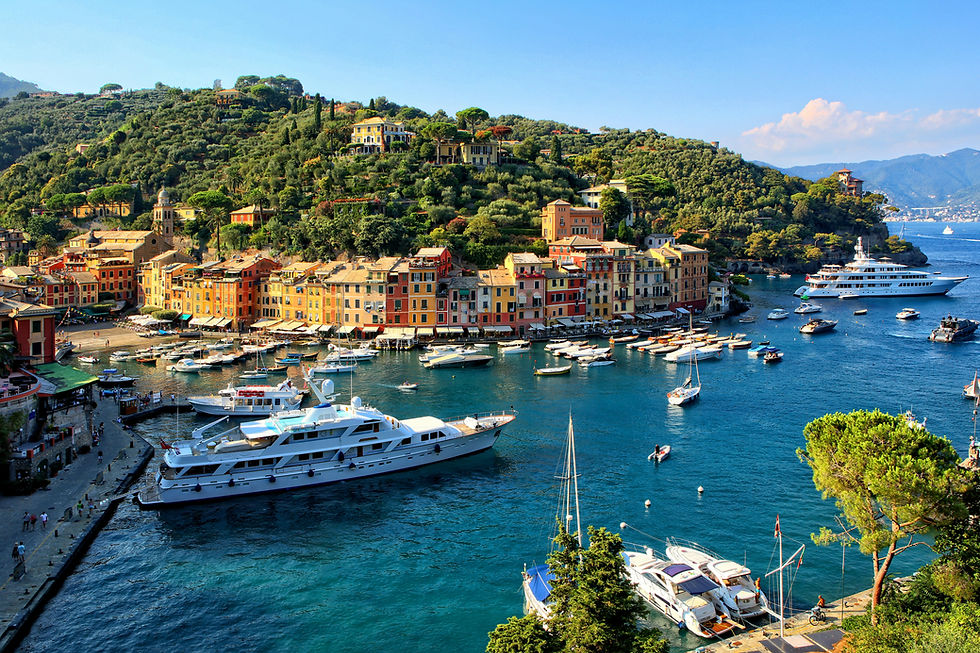Private vs. Public Healthcare in Italy for Wealthy Expats
- Knotted.it

- Aug 10, 2025
- 3 min read
Relocating to Italy as a High-Net-Worth Individual (HNWI) comes with unique lifestyle, tax and wealth planning advantages. Yet, one of the most overlooked aspects of life in Italy is healthcare—specifically, the choice between public and private healthcare systems. While Italy is known for its universal healthcare system, wealthy expats often seek clarity on how it works, how reliable it is, and whether private coverage is a smarter solution.
This guide compares public and private healthcare in Italy with a specific focus on the needs of international investors, entrepreneurs, and high-income retirees.

Understanding Italy’s Public Healthcare System (SSN)
Italy’s national health service is called the Servizio Sanitario Nazionale (SSN). It guarantees access to essential care for residents and legal immigrants, including expats with a valid residence permit.
The SSN offers:
General practitioner (GP) services
Specialist care (by referral)
Hospitalization
Emergency care
Maternity and pediatric care
Basic prescriptions at subsidized cost
While the quality of medical professionals is high, the system is often burdened by long waiting lists, bureaucratic delays, and regional disparities—especially between northern and southern Italy.
Who Is Eligible for Public Healthcare in Italy?
Eligibility depends on your residency status:
If you have a permanent residence permit or are registered as a resident, you're entitled to register with the SSN.
Expats under specific visa categories (e.g. elective residency visa) may not automatically qualify and might need to purchase private insurance.
Even under the flat tax regime, you can register with the SSN if you establish formal residency.
Registration with the SSN typically requires:
A residence permit (permesso di soggiorno)
Registration with the local town hall (comune)
A codice fiscale (Italian tax number)
Payment of a nominal fee, unless covered by employment or reciprocal treaties
Benefits of the Public System
Low out-of-pocket costs: Most basic treatments are heavily subsidized or free.
Access to specialists and diagnostic services through referrals.
Coverage across all regions once registered.
Emergency care is provided even to non-residents.
But be aware:
Waiting times for specialist appointments can extend from weeks to several months.
Access to English-speaking staff is limited in public facilities.
Some expats describe the administrative process as “complex and frustrating”.
Private Healthcare in Italy: Tailored to HNWI Needs
Private healthcare in Italy has grown significantly in recent years, especially in major cities like Milan, Rome, Florence, and Bologna. Many clinics now cater specifically to international patients and high-income individuals.
What private healthcare offers:
English-speaking doctors and administrative staff
Direct access to specialists (no GP referral required)
Short or zero waiting times
Upscale facilities, including private rooms
Custom wellness and longevity programs
Concierge services, sometimes integrated with international networks
Typical costs:
Specialist visit: €100 – €250
MRI scan: €300 – €800
Full-body check-up packages: €1,000+
Health insurance (annual premium): €1,500 – €5,000 depending on age and coverage
Is Private Insurance Required in Italy?
While not always mandatory, many expats—especially HNWIs—choose to carry international or local private insurance for peace of mind.
Options include:
International expat insurance (Cigna, Bupa, Allianz): Often portable across countries
Italian private insurance (e.g., Generali, Unisalute): More affordable but limited in scope
Hybrid solutions: A mix of SSN access + supplemental private policy
A good advisor will help you align your insurance coverage with your immigration status, tax residency, and lifestyle goals.
Can I Combine Public and Private Healthcare in Italy?
Yes. In fact, this is often the most efficient solution. Many wealthy expats:
Register with the SSN for basic coverage and emergency protection
Use private doctors for speed, flexibility and comfort
Take out private insurance to cover private clinic fees and international travel
This hybrid strategy ensures you always have access to world-class care, without delays or complications.
Choosing the Right Clinics and Providers
If you're relocating to Italy under the flat tax regime or with substantial assets, you likely expect seamless, top-tier medical support.
Look for:
Clinics with international accreditation
English-speaking concierge doctors
Partnerships with luxury retirement communities or HNWI relocation services
Proximity to major airports and international schools
Some high-end options to explore:
Humanitas (Milan)
Centro Medico Santagostino (Milan, Bologna)
Rome American Hospital (Rome)
Villa Donatello (Florence)
Clinica Fornaca (Turin)
Key Takeaways for Wealthy Expats
Italy’s public healthcare is affordable and of decent quality, but often slow and bureaucratic.
Private healthcare offers international standards, convenience and flexibility.
A combination of SSN registration + private insurance is often the optimal path.
Make sure your healthcare choices align with your tax status, residency strategy, and personal expectations.
✉️ Ready to relocate to Italy and want your healthcare to match your lifestyle?
Let us help you design a relocation and insurance strategy tailored to your needs.
📩 Write us at info@knotted.ch
📱 Or message us on WhatsApp: +41 76 771 30 22



